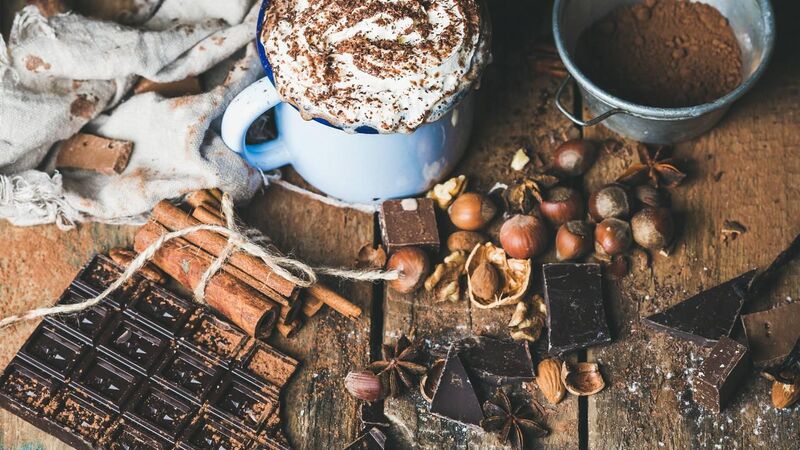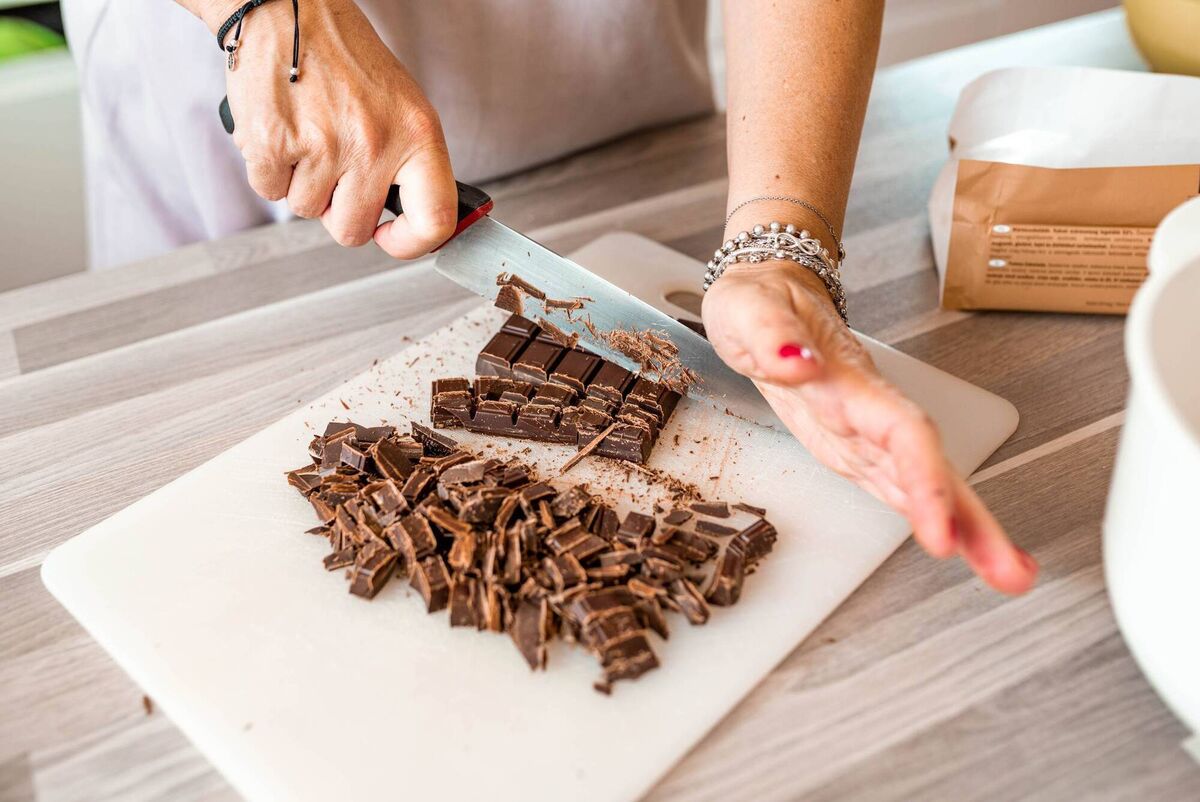Is dark chocolate actually good for us?

In recent years, the popularity of dark chocolate has soared with TikTok posts going viral on its potential health benefits.
The irresistible decadence of dark chocolate has tantalised taste buds for centuries.
The dark chocolate story goes back to the lush rainforests of ancient Mesoamerica where the cocoa tree flourished. The Olmec, May and Aztec civilisations were the first to revere the cocoa tree, the source of the cocoa bean, transforming it into a beverage reserved for religious ceremonies and royalty.
In the 16th century, the Spanish conquistadors of the Aztec culture brought the cocoa bean back to Europe, sparking a chocolate craze that spread rapidly across the continent. Initially consumed as a frothy beverage, innovative European confectioners soon added sugar and spices, paving the way for solid chocolate bars and the beginnings of a chocolate revolution.
In the 19th century, the arrival of the hydraulic press led to the smoother more luxuriant texture that we associate with chocolate today enhancing that rich intense flavour so many of us cannot resist.
In recent years, the popularity of dark chocolate has soared with TikTok posts going viral on its potential health benefits.
Long before social media, the iconic Audrey Hepburn reportedly had a special drawer in the house where she kept her chocolate and it was forbidden for anyone to touch it.
But do the health benefits of dark chocolate live up to all the hype or are we just convincing ourselves that it’s good for us because it is so delicious?
Dark chocolate that is at least 70% cocoa is stuffed with essential nutrients including iron, magnesium, copper, zinc and traces of vitamins A,B, E and K.
An average 100g bar has about 11g of fibre which is beneficial for gut health. Most dark chocolate contains cocoa butter – a source of the heart healthy fat, oleic acid.
The key is to ensure that it is not also stuffed with sugars and saturated fats – so always read the label.
Polyphenols and antioxidants
A paper in Nutrients (2020) outlined the particular benefits of dark chocolate that promotes healthy gut bacteria. The paper outlined how the polyphenols in dark chocolate reach the colon where there are degraded into smaller metabolites. Several experimental and clinical studies have reported the benefits of cocoa in terms of enhancing the growth of beneficial bacteria such as Lactobacillus and Bifidobacterium, while reducing the harmful ones, including certain species of Clostridia.
Medical doctor, epidemiologist and science writer Professor Tim Spector told the health science company ZOE that cocoa powder can help good bugs flourish. “If it’s good quality and has lots of cocoa and not so many of the other ingredients, then your gut bacteria generally do like chocolate.”
Prof Spector described the polyphenols in chocolate similar to those in fruits, nuts and seeds as ‘rocket fuel for your gut microbes.’
Antioxidants
While some polyphenols are lost in the production process, cocoa seeds are known as a ‘super fruit’; with more antioxidants than blueberries, pomegranates, green tea and red wine.
The potential antioxidant benefits are so convincing that a current clinical trial is being undertaken at Brigham and Women’s Hospital – an affiliate of Harvard Medical School in the US, investigating whether taking daily cocoa extract supplements containing 500mg/ day cocoa reduces the risk of developing heart disease, stroke and cancer. The Cocoa Supplement and Multivitamin Outcomes Study (COSMOS) includes over 21,000 men and women across the United States.
Heart health and blood pressure
Dark chocolate is also rich in polyphenols called flavonols. There is evidence that links regular consumption of dark chocolate with a lower incidence of both myocardial infarction and stroke and an overall reduction in death from cardiovascular disease.
Other studies have linked the polyphenols in dark chocolate with an increase ‘good’ cholesterol and reduction in ‘bad’ cholesterol. However, high levels of sugar and saturated fat in the dark chocolate can have an independent negative effect on cholesterol- if too much of it is eaten.

Further good news is that the flavonols in dark chocolate are associated with brain health. The link is supported by evidence of improved oxygen levels, nerve function and blood flow in the brain. The research reported that flavonols are also linked with increased nerve cell growth and higher levels of activity in areas of the brain associated with cognition and memory – like the hippocampus.
There is some evidence that these game- changing flavonols might also reduce the risk of type 2 diabetes, via their impact on how your body deals with insulin. A large- scale study published in Appetite in 2017, found that people who ate dark chocolate more than once a week had a significantly lower chance of developing type 2 diabetes over five years.
Dark chocolate can be game- changing for making us feel better and now the science seems to support this. We now know that flavonols stimulate the release of those mood- enhancing endorphins while cocoa metabolites are also linked to the production of serotonin – another mood- boosting neurotransmitter. However, more research is needed to substantiate these effects.
How much is good for us?
The real question is if dark chocolate has health benefits, how much of it is good for you?
Prof Spector advises eating chocolate that has at least 70% cocoa.
“If you go for very high cocoa content,” he told ZOE, “then you’re less likely to get anything that’s unhealthy. Pick something with the minimum number of ingredients on the label, and then you know you’re going to get something that’s very natural with very little taken away.”
In terms of how much is good for you, most of the research including a recent review in Nutrients (2024) recommends limiting consumption to about 20g or two squares a day. When to eat also matters. The evidence suggests that a small amount in the morning and evening may help to limit sweet cravings.
At the moment, the best advice seems to be to eat small amounts of good quality chocolate with minimum additives and at least 70% cocoa. First thing in the morning and towards the end of the day might be enough to satisfy those cravings, boost your gut, brain and heart health and help to keep you away from other less health- enhancing sweet treats.







 App?
App?


